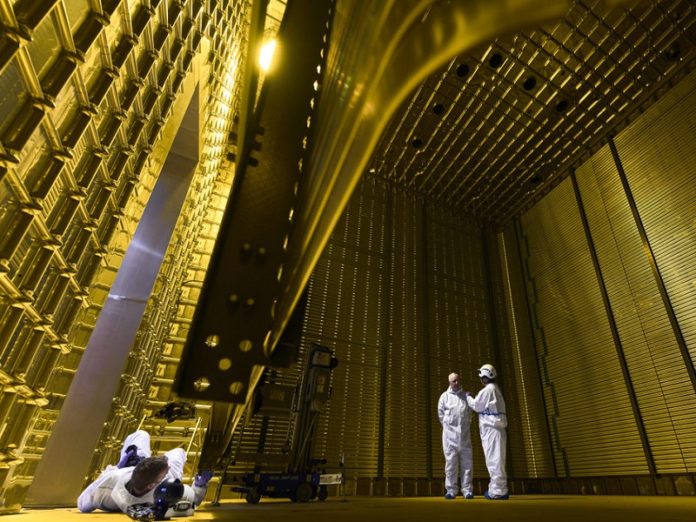A group of international scientists is a step closer to address the most fundamental question of the universe: Why we are here?
The experiment ‘Deep Underground Neutrino Experiment (DUNE)’, led by scientists at CERN, Switzerland, and Fermilab, USA are keen to know the mysteries of neutrinos, the most abundant and most mysterious matter particles in the universe.
DUNE’s liquid-argon neutrino detector- the world’s largest – has quite recently recorded its first molecule tracks, signaling the start of another part in DUNE’s analysis of neutrinos.
According to scientists, neutrinos may help answer one of the most pressing questions in physics of why we live in a universe dominated by matter. In other words, why are we all here?
Professor Ryan Nichol said, “This is the first step on the road to having the gigantic DUNE detectors. They will let us test how the universe works with unprecedented precision using a beam of particles that pass through over 1000km of the earth.”
“They might also shed light on how supernova and other exotic astrophysical processes work.”
At the point when neutrinos enter the detectors and smash into argon nuclei, they create charged particles which leave ionization traces in the fluid. These would then be able to be seen by modern tracking systems that make three-dimensional pictures of generally imperceptible subatomic procedures.
Dr. Linda Cremonesi (UCL Physics & Astronomy) said: “These first tracks are hugely significant as they represent the first steps towards the future DUNE detectors that will be 20 times bigger and will provide unprecedented information about the nature of neutrino oscillations.”
Sebastian Jones, (UCL Ph.D. candidate, Physics & Astronomy) said: “It’s a very exciting step towards DUNE which has huge implications on how we understand the universe and our very existence.”
In addition, scientists will observe neutrinos’ antimatter counterparts. It could lead to clues as to why the visible universe is dominated by matter.
DUNE will also watch for neutrinos produced when a star explodes, which could reveal the formation of neutron stars and black holes, and will investigate whether protons live forever or eventually decay, bringing scientists closer to fulfilling Einstein’s dream of a grand unified theory.
